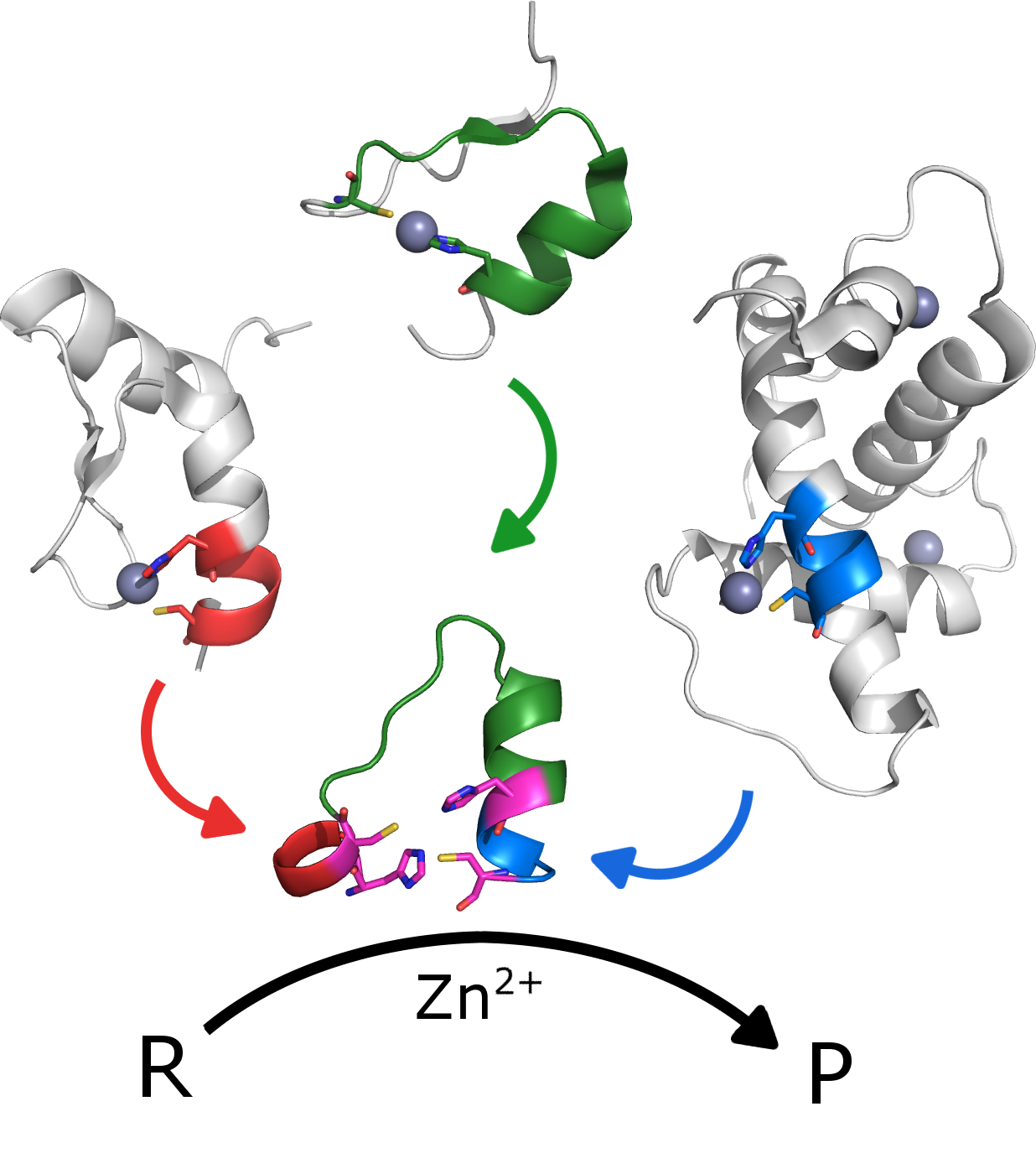Catalytic metallopeptides
Catalytic Metallopeptides: Bridging the Gap Between Small Molecule Catalysts and Metalloenzymes
Chemical reactions, both in living organisms and in the laboratory, often require catalysts to speed up their rate. In living systems, this role is usually filled by enzymes, large biomolecules of protein nature, which often bind a catalytic metal ion in their structure. In the laboratory, small molecular catalysts, often composed of a metal ion and a small organic molecule, are pervasive in both inorganic and organic chemistry. Enzymes provide great selectivity and specificity, but are sometimes hard to obtain in sufficiently large amounts to be commercially viable; small molecular catalysts can be produced in large quantities, but are not always selective enough.
The aim of this project is to design small metal-binding peptides, potentially with catalytic activity, for various uses. We do this by piecing together parts of proteins with known structure in order to build a predetermined metal-binding site (see Figure below). As this design process allows many such peptides to be designed, the peptides are then computationally processed using molecular dynamics (MD) for conformational sampling and DFT-D3//COSMO calculations for folding energy calculation. The best candidates are then selected for experimental verification for both metal binding and potential catalytic activity.1,2
The designed peptides could prove very valuable to various branches of the industry, including metal sensing, metal ion chelation in medicine, and extracting toxic metals from the environment. If the peptides have catalytic activity, they can also be used in chemical synthesis, providing cheap catalysts for simple reactions or catalyzing otherwise difficult reactions. If the designed oligopeptides are reasonably small, they can be produced in the laboratory using cheap and standard tools of peptide synthesis, without the need to use cloning and expression in cells followed by extraction and purification. This would significantly reduce the cost and increase time efficiency of their production.

References:
1. Kožíšek, M.; Svatoš, A.; Buděšínský, M.; Muck, A.; Bauer, M. C.; Kotrba, P.; Ruml, T.; Havlas, Z.; Linse, S.; Rulíšek, L. Molecular Design of Specific Metal‐Binding Peptide Sequences from Protein Fragments: Theory and Experiment. Chem. Eur. J. 2008, 14 (26), 7836–7846
2. Kormaník, J. M.; Herman, D.; Andris, E.; Culka, M.; Gutten, O.; Kožíšek, M.; Bednárová, L.; Srb, P.; Veverka, V.; Rulíšek, L. Design of Zn‐Binding Peptide(s) from Protein Fragments. ChemBioChem 2025, 26 (7), e202401014. https://doi.org/10.1002/cbic.202401014

